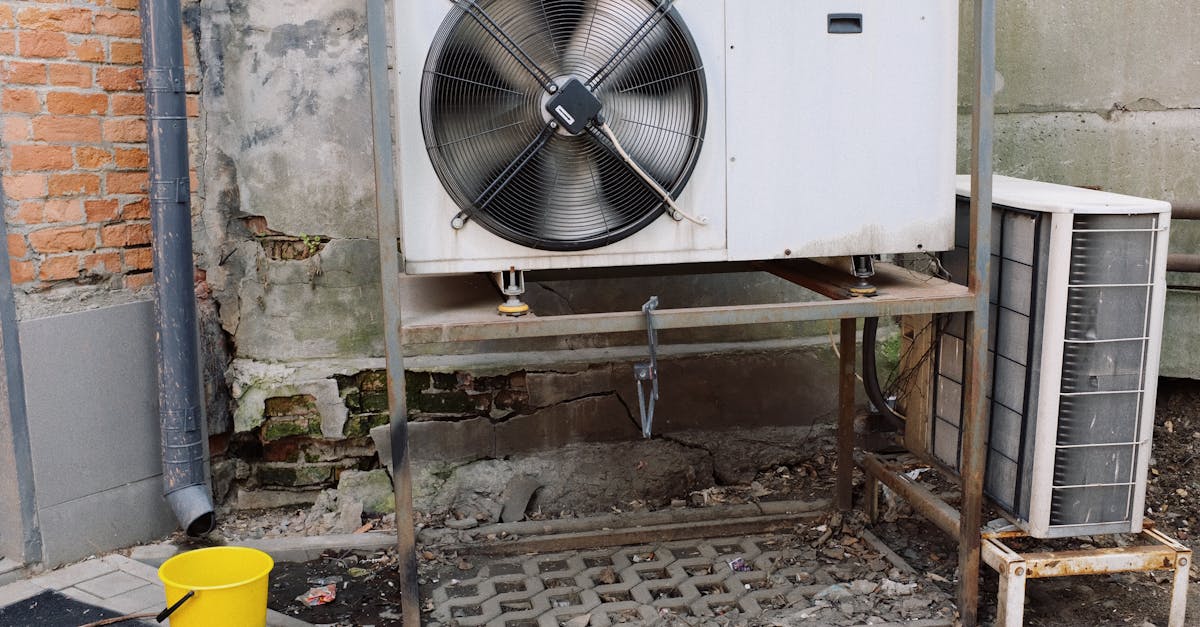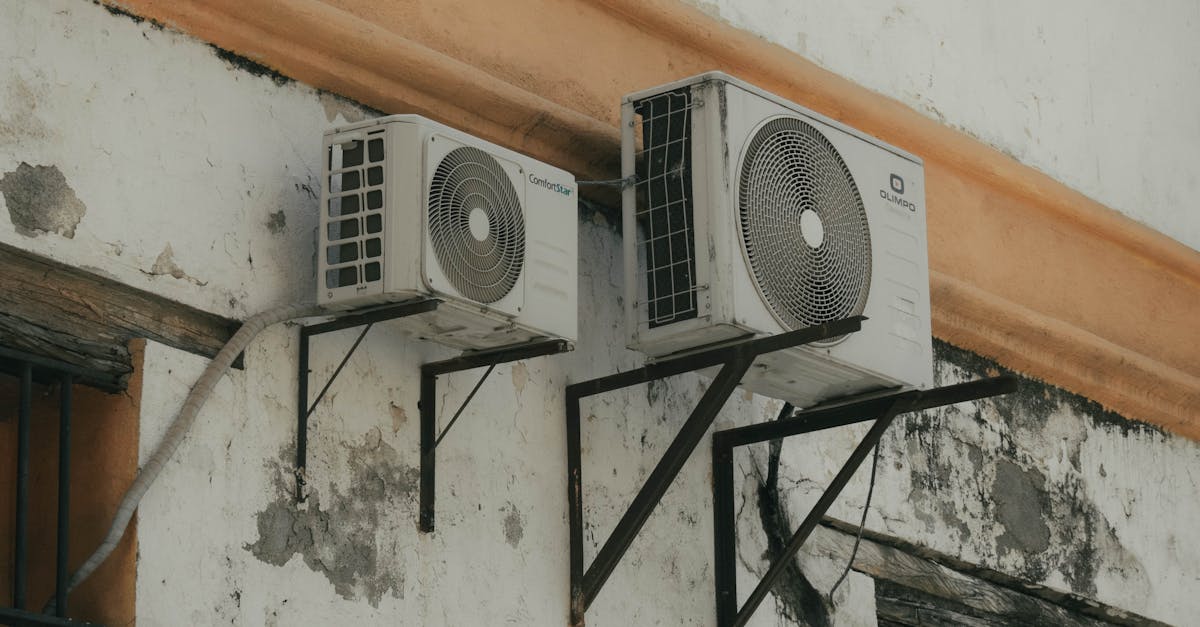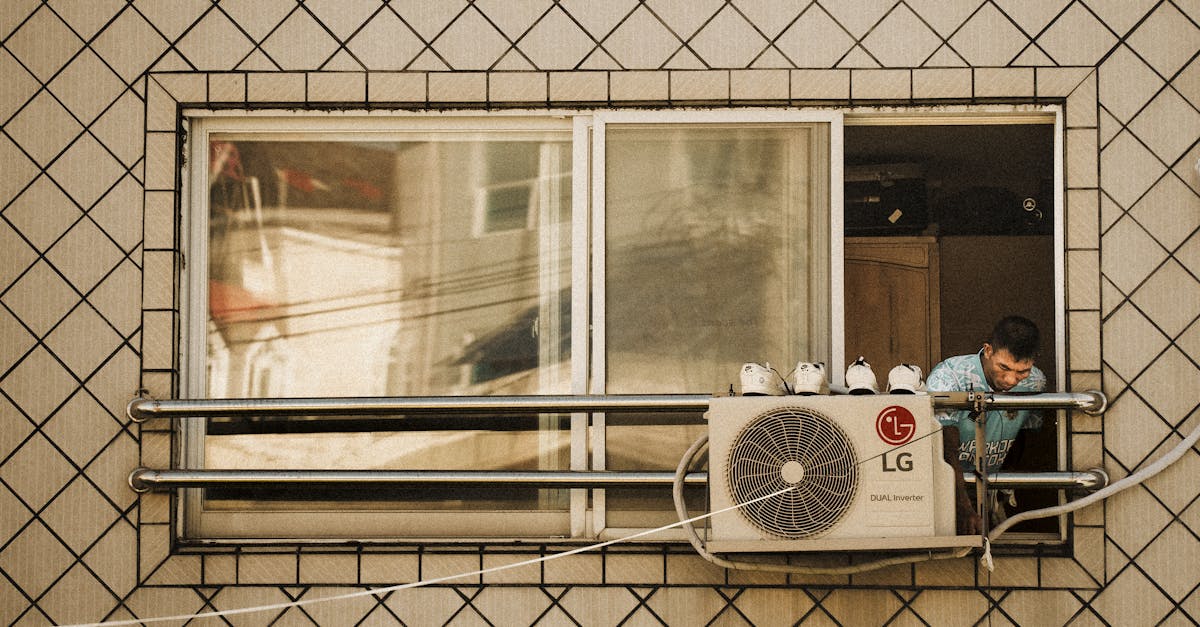
Table Of Contents
Performance in Various Climates
The performance of cooling systems can significantly vary based on the climate in which they operate. In regions characterised by high humidity, traditional air cooling may struggle to maintain comfortable indoor conditions, as it only circulates the warm air without effectively reducing humidity levels. In contrast, systems such as water cooled air conditioning Birmingham, West Midlands, offer superior moisture control. This makes them advantageous in humid conditions, as water cooling systems can absorb excess heat and moisture, leading to a more comfortable environment.
In drier climates, air cooling may be sufficient, yet water cooling still brings benefits. The evaporation process used in water cooling can provide a more consistent and efficient cooling experience, regardless of external conditions. This advantage is particularly evident in hotter months when maintaining lower temperatures becomes crucial for indoor comfort. Consequently, the ability of water-cooled systems to adjust to varying temperature and humidity levels positions them as a reliable option for diverse climates.
Suitability of Air and Water Cooling in Different Conditions
Air cooling systems tend to perform well in moderate climates where humidity levels are low. They rely primarily on the movement of air to cool spaces effectively, making them a practical choice for regions with dry weather conditions. However, during very humid days, air coolers can struggle to remove moisture, leading to discomfort. In such instances, water cooling systems can provide a superior option by maintaining a more consistent and comfortable indoor environment.
In contrast, water cooled air conditioning systems, such as those available in Walsall, West Midlands, are especially beneficial in areas with high ambient temperatures and humidity. They utilise water as a cooling medium, allowing for efficient heat exchange and improved refrigeration capacity. This makes them particularly effective for large commercial applications and in regions where extreme heat is prevalent. Their ability to efficiently manage humidity levels further enhances their suitability in such environments, ensuring both comfort and air quality for occupants.
Noise Levels
The noise levels produced by air conditioning units can vary significantly depending on their design and operation. Traditional air cooling systems often feature external units that can generate substantial sound, especially when the compressor is running at full capacity. This can be particularly noticeable in quiet neighbourhoods, where the hum of an air conditioning unit can be intrusive and disrupt the tranquillity of the environment. Water cooled air conditioning West Midlands systems, on the other hand, typically operate more quietly. The use of water circulation in these systems can minimise the noise associated with mechanical components, resulting in a more pleasant indoor atmosphere.
While noise output might be a concern for some users, it is essential to consider the specific model of the cooling system. Many newer air conditioning units are designed with sound reduction technology, which can help mitigate noise levels. However, water cooled air conditioning West Midlands options inherently have an advantage due to their design, which often allows for quieter operation. This can make them more appealing for residential settings where maintaining a serene environment is a priority. Ultimately, the choice between air and water cooling may come down to a balance of performance needs and the importance of noise levels in the chosen environment.
Comparing Sound Output of Cooling Methods
The sound output of cooling methods can significantly influence the comfort of the living environment. Air conditioning systems generally utilise fans that can generate noticeable noise, especially when operating at higher speeds. This can be an annoyance in residential spaces, making quiet operation an essential feature for many homeowners seeking comfort in their daily lives. In contrast, systems like water cooled air conditioning Wolverhampton, West Midlands tend to operate more quietly. They rely on the circulation of water instead of high-speed fans, which can lead to a more serene atmosphere.
When assessing the noise levels, it is crucial to consider the specific model and installation of the air or water cooling system. Many modern air conditioning units come with noise-reducing technology, yet they still may not match the subdued performance of their water-cooled counterparts. The design and setup of water cooled air conditioning systems can also contribute to lower sound emissions, as they are often installed outside or in less frequented areas. This aspect makes them particularly appealing for those prioritising a peaceful environment while maintaining effective cooling.
Installation Considerations
When contemplating the installation of a cooling system, the choice between air and water cooling methods can significantly affect the complexity of the process. Water cooled air conditioning systems often require more intricate plumbing and drainage setups. This can lead to increased installation time and potentially higher costs due to the necessity for professional installation services. Each unit must be configured properly to ensure efficiency and compliance with local regulations, particularly in urban areas like Birmingham, West Midlands.
In contrast, air cooling systems typically feature simpler installation processes. These units often require only electrical connections and venting, making them more straightforward for homeowners or less experienced installers. While air cooling may be less complex, it can still require adequate space for unit placement and airflow considerations. Careful planning is essential to ensure optimal performance and energy efficiency regardless of the chosen cooling method.
Installation Complexity for Air and Water Cooling
The installation process for air cooling systems tends to be straightforward. These units often require minimal modifications to existing structures, particularly in residential settings. Standard split systems can be mounted on walls or windows with relative ease. Furthermore, the majority of air conditioners can be installed by a qualified technician in a few hours, making them an accessible option for many homeowners.
In contrast, water cooling systems require a more complex installation process. This method involves additional components such as cooling towers and extensive plumbing work, which can be disruptive to the property. For those considering water cooled air conditioning Birmingham, West Midlands, the intricacies of installation must be meticulously planned to ensure effective operation. As a result, this cooling method may necessitate professional assistance and potentially longer installation times compared to traditional air conditioning units.
FAQS
What are the main differences between water cooling and air cooling AC systems?
The main differences lie in their cooling methods; water cooling systems use a liquid to absorb heat, while air cooling systems rely on airflow to lower temperatures. Water cooling tends to be more efficient in larger spaces, whereas air cooling is generally simpler and easier to install in smaller areas.
In which climates is water cooling more effective than air cooling?
Water cooling systems are typically more effective in hot and humid climates, as they can manage heat better due to the higher evaporation rates. In contrast, air cooling systems may struggle in such conditions, leading to less efficient cooling.
How do noise levels compare between air and water cooling systems?
Generally, water cooling systems operate more quietly than air cooling systems. Air conditioning units can produce significant noise due to fans and compressors, while water cooling systems tend to generate less sound, making them a preferable option for noise-sensitive environments.
Is installation more complicated for water cooling systems compared to air cooling systems?
Yes, installation of water cooling systems can be more complex, as they require the setup of plumbing and additional equipment such as pumps and reservoirs. In contrast, air cooling systems are usually more straightforward to install, often requiring just mounting and connection to an electrical supply.
Can I switch from air cooling to water cooling, and what does that involve?
Yes, you can switch from air cooling to water cooling. This process involves removing the existing air conditioning unit and installing the new water cooling system, which may require changes to your home's plumbing and possibly electrical systems. It's advisable to consult with a professional for the best results.


